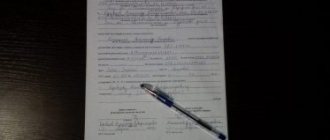What will the bailiffs take away first?
They will start with money, because it is easier to take it out and return it to the lender. There are two easiest ways:
- Find out if the debtor has accounts. The bailiff has the right to request Federal Law No. 229-FZ of October 2, 2007 from banks for such information. If the accounts are found, the institution will be obliged to withdraw money from them and transfer it to the bailiffs. If funds are insufficient, debts will be collected from future earnings.
- Act through the employer. If the debtor receives a white salary, part of it, according to the court decision, will immediately be sent to the bailiffs. The amount usually does not exceed 50% Federal Law of October 2, 2007 N 229-FZ of earnings. But if we are talking about alimony debts, then you can lose up to 70%. All calculations occur after income tax is withheld from the salary.
What Federal Law No. 229-FZ of October 2, 2007 will definitely not take away from you are various types of benefits and compensation related to harm to health, death, and so on.
If it was not possible to pay off debts with money, the bailiffs move on to the next stage: they confiscate and sell the property.
Can bailiffs seize the debtor's inheritance?
If your guarantor did not submit an application to accept the inheritance, then it would be possible not to enter into the inheritance, but to accept it actually, without receiving a certificate of inheritance.
Then the inheritance could be used, but the bank would not be able to foreclose on this property. However, in your case, if the Guarantor has submitted an application to accept the inheritance, then within the period established for accepting the inheritance, that is, six months from the date of opening of the inheritance, the heir has the right to refuse the inheritance. The inheritance does not include only rights and obligations that are inextricably linked with the personality of the testator, in particular the right to alimony, the right to compensation for harm caused to the life or health of a citizen, as well as rights and obligations, the transfer of which by inheritance is not permitted by the current legislation of the Russian Federation. After a court decision, the property was inherited from the parents, do they have the right to seize this property? 1 answer. Moscow Viewed 89 times. Asked 2012-10-28 10:01:02 +0400 in the topic “Civil Law” Can creditors seize the property of relatives according to the debtor’s registration for non-payment of the loan? — Can creditors seize the property of relatives according to the debtor’s registration for non-payment of a loan?
What property cannot be seized for debts
The list is quite long. It includes the Code of Civil Procedure of the Russian Federation Article 446:
- The only housing and the plot below it. An exception is if an apartment or house serves as collateral for a mortgage loan. Also, in rare cases, it is allowed to sell the only home when the amount of debt seriously exceeds the value of the property.
- Furniture, clothing, equipment necessary for life. That is, your bed, linen and stove will not be taken away from you. But you’ll have to say goodbye to the game console, mink coat and ruby ring.
- Property with which the debtor earns money. They won’t take away a sewing machine from a seamstress, a car from a taxi driver, or a laptop from a programmer. True, if an item costs more than 100 times the minimum wage (currently the minimum wage is 12,130 rubles), then they can still confiscate it.
- Farm animals, birds, rabbits and bees, food for them and buildings where they live. But only if they are kept for personal purposes. If animals and insects are used in business activities, they are subject to confiscation.
- Seeds for sowing.
- Products and money in the amount of the subsistence level, taking into account the debtor himself and his family members.
- Fuel for cooking and heating.
- Facilities necessary for a disabled person.
- Prizes and state awards.
Is it possible to seize an inheritance if the heir has not received title documents?
That is, you want to say that the property of the testator is determined and seized? Then what is the point in the procedure for determining the heir who, along with the property, inherits the debt? In this case, the debt, regardless of the presence of heirs, is withdrawn from the property of the deceased debtor in favor of the claimant. Nevertheless, the debt is written off specifically from the heir, if there is one, or not written off at all. Correct me if I'm wrong.
I entered into an inheritance, accepted the debt, but after 6 months I do not take ownership. Is it possible for bailiffs to seize an inheritance (movable and immovable) and, if so, is it possible to sell the seized property (before I take ownership)? After all, arrest ultimately, if nothing happens, implies implementation in favor of the claimant and has no other goals.
What property can be seized for debts?
It is allowed to seize what is not prohibited. There is no point in listing everything, but here are a few interesting options:
- Pets. By law, they are considered property of the Civil Code of the Russian Federation Article 137. Animals, so they are subject to seizure and subsequent sale. For example, in the Stavropol Territory, the owner was arrested for debts. In the Stavropol Territory, a cat was arrested for debts. In 2015, a bill was introduced into the State Duma. The Duma proposed banning the arrest of pets, which would prohibit this, but it did not find support.
- Fence. In the Stavropol region, bailiffs arrested a fence in the Krasnodar region, a fence made of corrugated sheets. The fence was dismantled and sold at auction.
- Hay. Two hundred haystacks ended up “Instead of 200 thousand rubles - 200 haystacks”: bailiffs seized hay from an alimony defaulter and put it under arrest because its owner, a farmer, did not pay alimony.
- Door. The debtor made it himself and wanted to install it instead of the old one. But before the South Ural bailiffs had time to arrest the door.
In general, nothing is safe. Fortunately, you can Federal Law No. 229-FZ of October 2, 2007, choose for yourself what you need least and offer it for implementation. But only if the price of these things is sufficient to pay off the debt.
Seized apartment as inheritance
To find out the reason for the seizure, you need to contact the Moscow registration chamber. Property is seized as security for a lawsuit or after a court decision to collect debts. As part of enforcement proceedings, until the debt is fully repaid, the bailiff seizes the property. The heirs need to familiarize themselves with the enforcement proceedings and find out the exact amount of the remaining debt. After its repayment, the arrest from the apartment will be lifted by the contractor himself.
But we need to figure out why and when the arrest was made. Perhaps the reasons why the apartment was seized have already disappeared. If not, you, as an heir, need to take timely measures to lift the arrest. Otherwise, you will not be able to dispose of the seized apartment - donate, sell or carry out any other actions related to the transfer of ownership. In addition, an apartment seized for debt can be put up for sale without the consent of the owner.
What will they do with the property next?
He will be sold. How exactly depends on the price Federal Law dated October 2, 2007 N 229-FZ. Property with a total value of less than 30 thousand rubles can be sold by the debtor himself if both parties agree on its price. It is written down in the deed of seizure. If the property costs more than 500 thousand, then it will be sold at open auction in the form of an auction. Things that do not fall into both categories are sold by a specialized organization.
Part of the proceeds will be given to the creditor - in the amount of the debt specified in the writ of execution. Some will be collected by the bailiffs in the form of an enforcement fee Federal Law dated October 2, 2007 N 229-FZ. It is equal to 7% of the debt amount, but not less than 1 thousand rubles per person and 10 thousand per organization. The money will be transferred to the budget.
If the debtor voluntarily pays the debt within five days after receiving the order from the bailiffs, the enforcement debt need not be paid.
Debt to the tax office
Arrears, penalties and fines collected by tax authorities may be considered uncollectible.
Then they are subject to write-off in the manner prescribed by the Tax Code (Article 59), and collection stops. The Federal Tax Service writes off debt from debtor citizens if:
- The bailiff returned the writ of execution, i.e. it was not possible to find the debtor, or his property, or the debtor does not have property with which to repay the debt.
The debt is written off if 5 years have passed since it arose, and the amount is not enough for bankruptcy (500 thousand rubles or more);
- the court refused to initiate bankruptcy proceedings against the debtor, because he does not have enough funds to pay for all the necessary procedures, or the debtor has been declared bankrupt.
Seizure of inheritance and estate by a notary
Today, seizure of property that is inherited is a very important and often discussed topic in judicial practice. And quite often, court decisions on this rather important issue are very necessary, and sometimes even necessary. Inheritance is most often considered as a certain kind of property that passes from one person to another according to the legislation in force in our country. Here, it is very important to note such a rather important fact that the definition of inheritance may include not only certain property or the legal rights of a certain person, but also obligations and debts.
Seizure of various property that is inherited can be imposed by decision of the judicial authorities or by bailiffs who have the legal right to do so. At the same time, these judicial bodies and services do not have the legal right to carry out an inventory of property. As an example, it is possible to consider one of the possible cases in practice concerning this issue, when a certain apartment or private residential building, which was presented as an inheritance, is considered the only place where a person who is the heir of this property can live.
Can bailiffs seize inheritance?
Is it possible to seize an inheritance? read answers (2) Tags: Bailiffs Cash Residential premises Can bailiffs seize an inheritance if the debtor (heir) regularly pays money under an individual entrepreneur and there are no claims against him from the victims? read answers (5 ) Tags: Can bailiffs seize Federal Law on Enforcement Proceedings Installment plan for the execution of a court decision If the inheritance was seized in 2013 and at the moment this bank does not exist, the license of this bank has been revoked, is the arrest valid? read answers (2) Tags: Solving the problem Seize Can inherited money be seized in a bank? The debtor claimed the right to inheritance, but has not yet received a certificate. The bailiffs know this. read answers (1) Tags: Federal law Money in the bank There is a debt...
Having assumed loan obligations, not many of us think about how they will subsequently repay the loan. Not only is the financial structure in Russia now going through hard times, but it is also impossible to predict your own future life. That is why citizens take out insurance in case of disability or death.
Entering into inheritance in the presence of debt from bailiffs
That is, the heirs are obliged to pay them in full, even if the deceased had other creditors. According to the law Art. 323 of the Civil Code (Rights of the creditor in case of joint and several obligations) allows the creditor to demand from the debtors (in this case, the heirs) repayment of the debt in full or in part, either from one of them or from all of them.
(in a total amount of 269,000 rubles) If I pay all my debts now, and in 20-30 days I hand over the documents to register the apartment, will they be arrested? when (will I light up) that property appeared!? What is the best way to deal with this situation? That is, will the arrest be automatically imposed upon registration of the apartment, or is it better to lift the arrest in advance?
Obligation of heirs to pay the debts of the testator
3. The bank or other credit organization immediately executes the decision to seize the debtor’s funds and informs the bailiff of the details of the debtor’s accounts and the amount of the debtor’s funds seized for each account.
Property not subject to seizure by bailiffs
You can enter into agreements of gift, purchase and sale of property with one of your relatives or friends, but the bailiff will still seize them and you will have to prove the authenticity of the transaction in court and remove the property from the inventory of the debtor’s property.
But then the guarantor has the right to claim the property of the testator to repay his losses (only if the heirs abandoned it) or to recover from the heirs all the costs incurred to pay the loan.
- debt on loans;
- microloan from microfinance organizations;
- debts to third parties (individuals, officially confirmed, for example, by a receipt);
- obligations under annuity agreements or lease agreements;
- obligations under civil law transactions;
- debts and utilities housing and communal services;
- tax debt;
- fines and penalties incurred during the life of the testator.
Are debts inherited?
If the child is not yet 14 years old, then the inheritance is accepted by his parents; at the age of 14, the child does this independently with the written consent of the parents. These measures are necessary in order to protect the child from making rash decisions.
The loan was not repaid for a year, as a result there was a court and a decision: to collect both. But since the debtor himself does not work and has no income, they are trying to withdraw the entire amount from me. I returned to work from maternity leave, and I’m quietly giving back. BUT! Child benefits and all Sberbank accounts were seized.
Is it possible to enter into an inheritance if the apartment is under arrest?
3 years ago, the mother was convicted of misappropriating money from the bank where she worked, as a result of which her real estate was seized, she was convicted and must return the property. amount to the bank. She repaid the debt, but in some parts, not completely. A week ago my father died. The apartment remains under arrest. I am the daughter, the only heir. What part of the apartment can I claim and can I at all, if it is under arrest and what does this all entail: selling the apartment and paying off the debt to the bank or some other options?
If collectors threaten to collect
Any threats, moral pressure and psychological violence are a direct violation of Law No. 230. If an agency representative behaves this way, then he is violating the law. The borrower has every right to complain about such a collection agency to the NAPCA association or to the supervisory authorities. Complaints are accepted in free form. However, communicating that you have a debt and need to pay it off is not always a threat. The creditor, whoever he is, has the right to sue the borrower with the debt. If his demands are satisfied, state enforcement officers represented by the Bailiff Service will intervene. In this case, the borrower may actually face seizure of accounts and property, but the collection agency will no longer have anything to do with this.
AutoJurist legal assistance
Hello! Can they take away a privatized apartment for debts in Ukraine? The apartment was privatized in marriage to a husband, wife and minor child (three equal shares). We are now divorced. My minor son and I checked out, but my (ex) husband remained registered in this apartment. The apartment is empty, no one lives in it and no one pays for it. The debt for the apartment is 3500 hryvnia. Part of the husband was arrested for non-payment of alimony. Can property be taken away for debts? Can any services do anything with someone else’s property without informing the owner? Thank you





